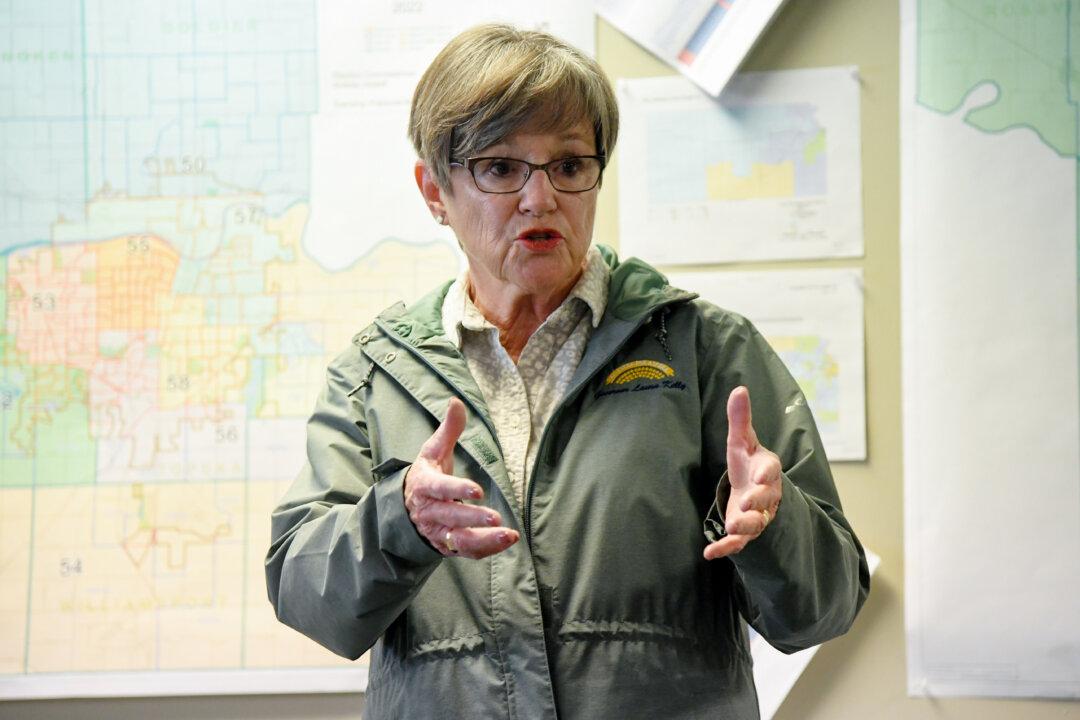The Kansas legislature on April 29 overrode vetoes from Gov. Laura Kelly, enabling two abortion-related bills to soon become law.
The Kansas Senate voted 28–10, and the Kansas House of Representatives voted 85–40, to override Ms. Kelly’s veto of a bill that makes it a crime to coerce a pregnant woman into receiving an abortion.





